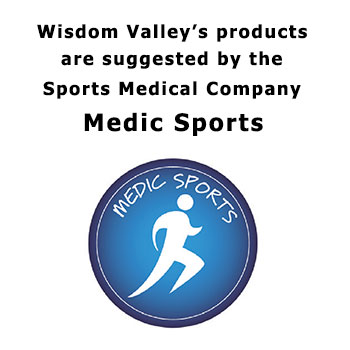Food supplements
Food supplements: Who needs them and when?
There are numerous food supplements on the market, but whom are they for? When are they beneficial, ineffective or even harmful? In this article we explore the general recommendations on taking food supplements.
What are food supplements?
The idea behind food supplements, also called dietary or nutritional supplements, is to deliver nutrients that may not be consumed in sufficient quantities. Food supplements can be vitamins, minerals, amino acids, fatty acids, and other substances delivered in the form of pills, tablets, capsules, liquid, etc. Supplements are available in a range of doses, and in different combinations. However, only a certain amount of each nutrient is needed for our bodies to function, and higher amounts are not necessarily better. At high doses, some substances may have adverse effects, and may become harmful. For the reason of safeguarding consumers’ health, supplements can therefore only be legally sold with an appropriate daily dose recommendation, and a warning statement not to exceed that dose.
Supplement use varies in Europe. For example it is common in Germany and Denmark (43% and 59% of the adult population respectively) but is less so in Ireland and Spain (23% and 9% respectively). Women use supplements more than men.
Who needs food supplements?
Supplements are not a substitute for a balanced healthy diet.
A diet that includes plenty of fruits, vegetables, whole grains, adequate protein, and healthy fats should normally provide all the nutrients needed for good health. Most European countries agree that messages aimed at the general public should focus on food-based dietary guidelines. Supplements do not feature in these guidelines, but there are certain population groups or individuals who may need advice about supplements, even when they eat a healthy balanced diet, i.e. women of childbearing age, individuals on specific medications.
Partly due to our modern lifestyle, not everyone manages to eat a healthy diet. In Europe, dietary surveys have suggested that there are suboptimal intakes for several micronutrients. The EU-funded EURRECA project found inadequate intakes for vitamin C, vitamin D, folic acid, calcium, selenium and iodine. A recent comparison of national surveys showed widespread concern about vitamin D intakes, whereas certain age groups are more likely to have low intakes of minerals. For example, there is concern about adequate intakes of iron amongst teenage girls in Denmark, France, Poland, Germany and the UK.
Poor iron status in young women also increases the risk of infants being born with low-birth weight, iron deficiency and delayed brain development. Folate status is also critical for women who may become pregnant. They are advised to take folic acid before conception, and continue for the first 12 weeks of pregnancy. An adequate folate status can decrease the risk of having a baby with neural tube defects such as spina bifida. Recent research suggests that 50–70% of Europeans have poor vitamin D status.
Since vitamin D status is dependent not only on dietary intake but also exposure to UV light, there may be a stronger case for advising supplements for vitamin D in Northern European countries. In some countries (including UK, Ireland, the Netherlands and Sweden) there are already recommendations for certain groups in the population to take a vitamin D supplement, although there are calls for more research.
Other common concerns are shown in Table 1, although groups considered at risk are not the same in different countries.
Table 1: Examples of population groups requiring specific advice about supplements
Population group
Nutrients
People over age 50
Vitamin D, Vitamin B12, folate
Frail elderly may benefit from a low-dose multivitamin supplement.
Women of childbearing age
Folic acid and vitamin D, possibly iron
Children under age 5
| Population group | Nutrients |
| People over age 50 | Vitamin D, Vitamin B12, folate
Frail elderly may benefit from a low-dose multivitamin supplement. |
| Women of childbearing age | Folic acid and vitamin D, possibly iron |
| Children under age 5 | Vitamin A, vitamin C, vitamin D, although children with a good appetite who eat a wide variety of food may not need them. |
| Breastfeeding women | Vitamin D |
| People who cover their skin, are dark-skinned, or are housebound | Vitamin D |
| Vegans | Vitamin B12, vitamin D2 |
Despite having a role in the health of some individuals, not all supplements are useful for everybody. In fact, for some people, it is not advisable to take certain supplements, in particular in high doses. Some studies show multivitamins can contribute to an increased risk of excessive nutrient intakes, and it has been suggested that multivitamins should be formulated with greater consideration for the intakes of micronutrients from foods.
Individuals should pay particular attention to reading the label and assure that a supplement is suitable for them. For pregnant woman, for example, supplements containing vitamin A (retinol) including fish liver oil may be harmful and cause birth defects if the recommended dose is greatly exceeded, or exceeded over an extended period of time.
Studies have also highlighted that smokers should be wary of some supplements, in particular high doses of beta-carotene. The European Food Safety Authority (EFSA) has considered the evidence in this area and has concluded that exposure to β-carotene below 15 mg/day is safe in the general population, including smokers.
Conclusion
Some population groups are advised to take specific supplements. The overall message is: follow a healthy, balanced diet, carefully read labels of supplements and fortified foods, and avoid taking multiple doses that exceed the Recommended Daily Amounts (RDAs). In case of doubt, seek advice from a dietitian or medical doctor before choosing a dietary supplement.

Wisdom Valley distributes its products via wholesale in selected businesses all over Greece. If you are interested in our products please get in contact with us by completing the relative form or by calling us on 211 402 1083 or 694 66 80 398.








